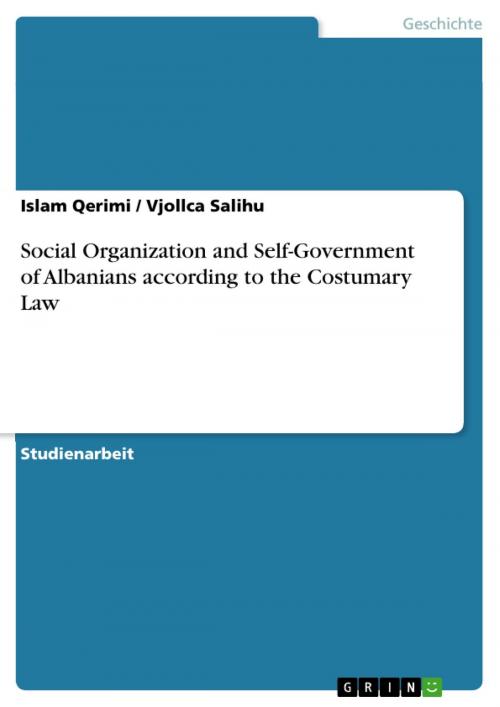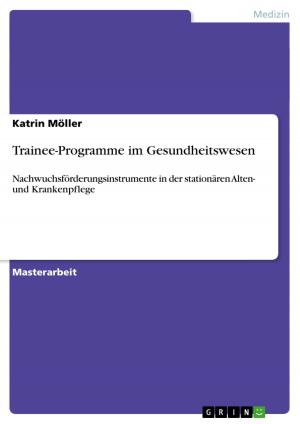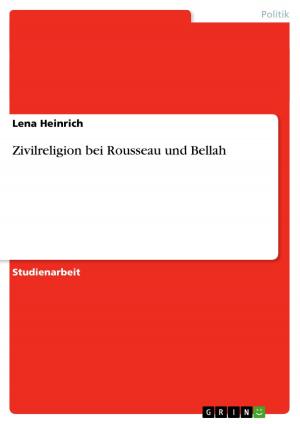Social Organization and Self-Government of Albanians according to the Costumary Law
Nonfiction, History, Military, Other| Author: | Islam Qerimi, Vjollca Salihu | ISBN: | 9783640947683 |
| Publisher: | GRIN Verlag | Publication: | June 30, 2011 |
| Imprint: | GRIN Verlag | Language: | German |
| Author: | Islam Qerimi, Vjollca Salihu |
| ISBN: | 9783640947683 |
| Publisher: | GRIN Verlag |
| Publication: | June 30, 2011 |
| Imprint: | GRIN Verlag |
| Language: | German |
Studienarbeit aus dem Jahr 2011 im Fachbereich Geschichte Europa - and. Länder - Europa ab kaltem Krieg, Universität Wien, Sprache: Deutsch, Abstract: The focus of this research is about Albanian's social organization and self-government from early developments and forms of social organization under customary law until the codification of Albanian customary law. This research further shows the importance of the albanian codes during social organization ; Old Kanun, The Kanun of Lekë Dukagjini ,The Kanun of Çermenikë, The Kanun of Labëria, and Kanun of Skanderbeg; but with great emphasis on The Kanun of Lekë Dukagjini, used mostly in northern Albania and Kosovo, which was developed by Lekë Dukagjini who codified the existing customary laws. Dispite historical challenges Albanian self-organization for self-government had a unique resistance in the history of unequal wars and achieved recently to turn the desire for creation of the state of Kosovo into a new reality. Today this social organization willingness of Albanians self-government has taken a new political, legal, economic and social dimension, establishing basis of a new modern European state.
Prof. Dr. iur. Islam Qerimi, LL.M. wurde in Dumnica e Poshtme (Kosova) geboren. Sein Diplomstudium der Rechtswissenschaften hat er an der Universität von Prishtina und sein Magisterstudium der Rechtswissenschaften an der Ruhr-Universität Bochum und Doktoratstudium an der Rechtswissenschaftlichen Fakultät der Universität Wien erfolgreich abgeschlossen. Außerdem wurde er vom Radius Institut für Kommunikation und Konfliktmanagement zum Mediator (Dortmund) und systemischen Coach (Köln) ausgebildet. file:///C:/Users/i_qer/Downloads/DEMO9783959935319.pdf
Studienarbeit aus dem Jahr 2011 im Fachbereich Geschichte Europa - and. Länder - Europa ab kaltem Krieg, Universität Wien, Sprache: Deutsch, Abstract: The focus of this research is about Albanian's social organization and self-government from early developments and forms of social organization under customary law until the codification of Albanian customary law. This research further shows the importance of the albanian codes during social organization ; Old Kanun, The Kanun of Lekë Dukagjini ,The Kanun of Çermenikë, The Kanun of Labëria, and Kanun of Skanderbeg; but with great emphasis on The Kanun of Lekë Dukagjini, used mostly in northern Albania and Kosovo, which was developed by Lekë Dukagjini who codified the existing customary laws. Dispite historical challenges Albanian self-organization for self-government had a unique resistance in the history of unequal wars and achieved recently to turn the desire for creation of the state of Kosovo into a new reality. Today this social organization willingness of Albanians self-government has taken a new political, legal, economic and social dimension, establishing basis of a new modern European state.
Prof. Dr. iur. Islam Qerimi, LL.M. wurde in Dumnica e Poshtme (Kosova) geboren. Sein Diplomstudium der Rechtswissenschaften hat er an der Universität von Prishtina und sein Magisterstudium der Rechtswissenschaften an der Ruhr-Universität Bochum und Doktoratstudium an der Rechtswissenschaftlichen Fakultät der Universität Wien erfolgreich abgeschlossen. Außerdem wurde er vom Radius Institut für Kommunikation und Konfliktmanagement zum Mediator (Dortmund) und systemischen Coach (Köln) ausgebildet. file:///C:/Users/i_qer/Downloads/DEMO9783959935319.pdf















